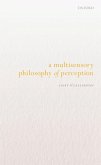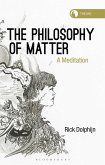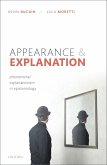Perception is our key to the world. It plays at least three different roles in our lives. It justifies beliefs and provides us with knowledge of our environment. It brings about conscious mental states. It converts informational input, such as light and sound waves, into representations of invariant features in our environment. Corresponding to these three roles, there are at least three fundamental questions that have motivated the study of perception. How does perception justify beliefs and yield knowledge of our environment? How does perception bring about conscious mental states? How does a perceptual system accomplish the feat of converting varying informational input into mental representations of invariant features in our environment? This book presents a unified account of the phenomenological and epistemological role of perception that is informed by empirical research. So it develops an account of perception that provides an answer to the first two questions, while being sensitive to scientific accounts that address the third question. The key idea is that perception is constituted by employing perceptual capacities - for example the capacity to discriminate instances of red from instances of blue. Perceptual content, consciousness, and evidence are each analyzed in terms of this basic property of perception. Employing perceptual capacities constitutes phenomenal character as well as perceptual content. The primacy of employing perceptual capacities in perception over their derivative employment in hallucination and illusion grounds the epistemic force of perceptual experience. In this way, the book provides a unified account of perceptual content, consciousness, and evidence.
Dieser Download kann aus rechtlichen Gründen nur mit Rechnungsadresse in A, B, BG, CY, CZ, D, DK, EW, E, FIN, F, GR, HR, H, IRL, I, LT, L, LR, M, NL, PL, P, R, S, SLO, SK ausgeliefert werden.
Hinweis: Dieser Artikel kann nur an eine deutsche Lieferadresse ausgeliefert werden.









